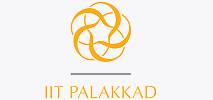Course Title and Code (EE5610)
Digital Controller for Energy Conversion
Course Credit
2-0-2-3 (Lecture-Tutorial-Pratical-Total Credits)
Category
PME/ERC
Target Program
UG, PG
Target Discipline
All Engineering Disciplines
Prerequisites
UG level control systems (EE3060)/Discrete mathematics (CS2020A)
Course Outline
| Module | Topics | L | T | P |
|---|---|---|---|---|
| Module 1: Basics | The importance of control techniques in the context of energy conversion, Introduction to continuous-time open-loop and closed-loop control, Control band concept and review of time and frequency domain fundamentals, Sampling theorem, sampled-data control systems, and ideal sampler, Sample and hold operations and frequency domain considerations, Revisiting Z-transforms, properties, and their application in solving difference equations, Mapping from continuous domain (s-plane) to discrete domain (z-plane), zero order hold equivalence, Stability analysis of discrete systems using pole location, and root locus based design in the discrete domain | 9 | 0 | 2 |
| Module 2: Digital Controller Design | Design of digital control systems: PID controllers and frequency domain compensation, Simple digital filter design, Controller design using time domain and frequency domain methods, Simulation analysis of digital control system, Introduction to digital control using state space methods | 6 | 0 | 4 |
| Module 3: Familiarization with Digital Controllers | Numeric systems: Fixed and floating-point representation, Architecture of a digital signal controller, Basics of programming the controller, Peripheral modules and their role in digital control systems, Familiarization with the GPIOs, and basic configuration, Interfacing with DAC and ADC for signal generation and measurement, PWM generation, Concept of per unitization for digital implementation, Implementation of lag/lead compensators and simple digital filters, Familiarization with quadrature encoders and communication modules (I2C, SPI, RS232), Practical application of digital control using C2000 or similar digital control platform | 5 | 0 | 4 |
| Module 4: Lab Experiments | The objective of these lab exercises is to bridge the gap between the simulation environment and the digital control platform, while also gaining practical knowledge on the application of theoretical concepts. Renewable energy conversion: Design, analysis, and implementation of closed-loop control for DC-DC converter-based renewable energy conversion system. Electromechanical energy conversion: Design, analysis, and implementation of closed-loop speed control for a PMDC motor with cascaded control structure. | 8 | 0 | 12 |
Total: 28L, 0T, 22P
Learning Outcomes
- Design and implement digital control systems, including PID controllers and frequency domain compensation.
- Gain hands-on experience with digital control platforms.
- Familiarize with per-unitization and discretization techniques in digital control systems.
- Implement lag/lead compensators and generate waveforms using digital controllers.
- Gain practical experience in designing and implementing closed-loop control systems for energy conversion applications.
Textbooks
- Applied Control Theory for Embedded Systems by Tim Wescott, Newness Publications, 2006, ISBN: 978-0-7506-7839-1
- Digital Control of Dynamic Systems by G. F. Franklin, J. D. Powell and M. L. Workman, 3rd edition, 1998, eEdition-2 current as of 2022, Ellis-Kagle Press, ISBN: 0-9791226-3-5 or ISBN 13: 978-0-9791226-3-7
- Computer Controlled Systems - Theory and Design by K. J. Astrom and B. Wittenmark, Prentice Hall, 3/e, 1997, ISBN: 0131643193
- Digital Control Systems by B. C. Kuo, Oxford University Press, 2/e, Indian Edition, 2007, ISBN-10: 0195686209
- TMS320F2802x, TMS320F2802xx Microcontrollers Technical Reference Manual
References
- Discrete Time Control Systems by K. Ogata, Prentice Hall, 2/e, 1995, ISBN-10: 0133286428
- Digital Control and State Variable Methods by M. Gopal, Tata McGraw Hill, 2/e, 2003, ISBN: 0070483027, 9780070483026
